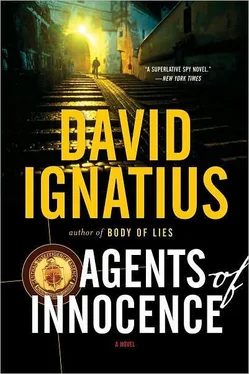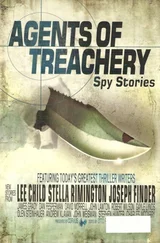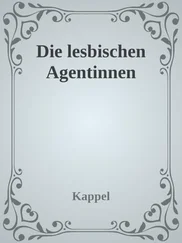David Ignatius - Agents of Innocence
Здесь есть возможность читать онлайн «David Ignatius - Agents of Innocence» весь текст электронной книги совершенно бесплатно (целиком полную версию без сокращений). В некоторых случаях можно слушать аудио, скачать через торрент в формате fb2 и присутствует краткое содержание. Жанр: Шпионский детектив, на английском языке. Описание произведения, (предисловие) а так же отзывы посетителей доступны на портале библиотеки ЛибКат.
- Название:Agents of Innocence
- Автор:
- Жанр:
- Год:неизвестен
- ISBN:нет данных
- Рейтинг книги:3 / 5. Голосов: 1
-
Избранное:Добавить в избранное
- Отзывы:
-
Ваша оценка:
- 60
- 1
- 2
- 3
- 4
- 5
Agents of Innocence: краткое содержание, описание и аннотация
Предлагаем к чтению аннотацию, описание, краткое содержание или предисловие (зависит от того, что написал сам автор книги «Agents of Innocence»). Если вы не нашли необходимую информацию о книге — напишите в комментариях, мы постараемся отыскать её.
Agents of Innocence — читать онлайн бесплатно полную книгу (весь текст) целиком
Ниже представлен текст книги, разбитый по страницам. Система сохранения места последней прочитанной страницы, позволяет с удобством читать онлайн бесплатно книгу «Agents of Innocence», без необходимости каждый раз заново искать на чём Вы остановились. Поставьте закладку, и сможете в любой момент перейти на страницу, на которой закончили чтение.
Интервал:
Закладка:
“Yes.”
“And do you know what we should do about it?” asked Cohen, his voice rising, his eyebrows taking flight.
“No,” said Levi.
“We should kill the bastards! Every one of them.”
The next several days brought a flood of intelligence about the Munich incident. Much of it came across Levi’s desk. There were stacks of telephone and wireless intercepts, cables from every Israeli embassy in Europe, reports from agents and tipsters around the world about the Munich operation. The sheer volume of the material overwhelmed Levi. Somewhere in the mountain of paper there might be a message saying that the massacre had been planned by the president of Egypt himself, but it would take days to find it. The problem, Levi decided, wasn’t collecting intelligence. In the modern era of communications intercepts, that was easy. The problem was analyzing it in time to make a difference.
Much of what came in during those first few days was predictable and not very helpful. Black September had issued a four-page mimeographed statement in Cairo during the first few hours of the operation, declaring that the Israeli athletes were “under armed arrest” and explaining the conditions under which they would be freed. The Fatah leadership in Beirut issued a statement denying any responsibility for the Munich operation. Arab press reports generally condoned the massacre and said it was really Israel’s fault for oppressing the Palestinian people.
What struck Levi, as he began to sift through the intelligence, was how cleverly Black September had planned the operation. They had known exactly where to go in the Olympic Village to reach the Israeli quarters, how to penetrate the supposedly tight security, when to stage the attack for maximum surprise. They had managed to smuggle a small arsenal of weapons into West Germany undetected. They had been able to deliver precise demands in Cairo, several thousand miles away, shortly after the attack began. And they had, in the final moments at the airport, seen through the West German ruse and exacted a bloody price by killing all the hostages. Clearly, these were not amateurs.
The West German police provided the first good clue. They combed the employment records of all the companies and contractors that had worked on the Olympic Village, looking for the “inside man” who might have helped Black September. They soon discovered that one of the architects who had worked on the Olympic Village was a well-educated Palestinian. Levi ran his name and passport number through the computer and found that Mossad maintained a small file on him. He was a Fatah sympathizer, born in Haifa and educated in Europe. He had attracted Mossad attention because of a report that he had attended a meeting in 1971 with a Fatah intelligence officer. A man named Jamal Ramlawi.
Communications intercepts added more clues. The analysts in Unit 8200 noted unusually heavy wireless traffic between the Fatah headquarters in Beirut and a transmitter in East Berlin on the day of the Munich operation. The analysts were still trying to break the code and decipher the communications. But they already had a working hypothesis: East Berlin was the Fatah command post for the operation. Someone there had been running the show.
The Israelis asked the West Germans for permission to review the names of all Arab passport holders who had entered East Berlin from the West during the previous month. The list duly arrived on Levi’s desk. Among the hundreds of names and numbers, one caught Levi’s eye like a bright red flag. It was an Algerian passport, issued to someone named Chadli bin Yehiya. A quick check in the files confirmed that the same name and passport number had been used once before by Jamal Ramlawi.
Levi fed his intelligence reports to the Chiefs, who were holding daily meetings to plan their response to Munich. They gathered now, not in a sunny conference room on the way to Herzliya, but in a dark command bunker under the streets of Tel Aviv. In the dark, they were preparing to fight a war in the shadows.
Rosh Hashana, the Jewish new year, was celebrated three days after the Munich massacre. It was the end of the 5,732nd year of the Jewish people. “Who will live and who will die?” asked the traditional Rosh Hashana prayer. “Who by fire, who by sword?” The president of Israel issued a new year’s message to mark the beginning of year 5733. He spoke of the tragedy in Munich. “To the conscience of the world, we cry: ‘Let there be no rest till this evil arm is cut off!’ To the bereaved-parents and wives and children, friends and colleagues-we say: ‘The wounded hearts of all the nation feel with you. How shall we comfort you?’ ”
The Knesset delivered a simple answer when it met a week after Munich. Revenge.
The Israeli parliament passed a resolution declaring the terrorists “enemies of humanity” and vowing to “act with perseverance against the terrorist organizations, their bases and those who aid them, until an end is put to this criminal activity.” The meaning of that opaque language was hinted at in a dispatch by the military correspondent of The Jerusalem Post, who wrote: “Israel is expected to meet the terrorists on their own terrain in order to combat the rising wave of terror, using tactics which will be both unconventional and damaging.”
Israel, in other words, was embracing the weapons of its enemies in the war against terror.
37
Tel Aviv; October 1972
The Director of Central Intelligence travelled to the Middle East in October, a month after Munich. The trip had been planned long ago, but the terrorism problem gave it a sharper focus. So did a White House announcement in mid-September that the president had decided on a tough new anti-terrorism program. The Director wasn’t sure what that was all about. He wasn’t aware that there actually was any new presidential policy on terrorism, or indeed any policy at all. Nevertheless, he sensibly delivered to the president, Eyes Only, a copy of his itinerary with the notation: “Hope to gather support for our new anti-terrorism program during the trip.”
The trip marked the first visit ever by a sitting DCI to Israel. A stopover in Tel Aviv had never before seemed advisable, given the sensitivities, not to say paranoia, of the Arab intelligence services. The Director had decided, to hell with Arab sensitivities, and scheduled a trip that would include stops in Jordan, Israel and Lebanon. That seemed safe enough. All three countries were regarded in the Arab world as wholly-owned subsidiaries of the CIA anyway.
The Director travelled in style. He brought his wife, his tennis racket, his tuxedo, his smoking jacket, his golf clubs, and a sun reflector for poolside. He also brought several secretaries, code clerks, bodyguards, and, to help with the locals, the chief of the Near East Division of the clandestine service, Mr. Edward Stone.
They all piled into a comfortable Air Force 707, one of the fleet of planes that is available for top government officials when they travel abroad. This particular plane was known as “the Tube” because it had no windows, and for that reason it was shunned by most of the big shots. But it was the Director’s favorite. He thought it cozy. The plane was laid out inside like a small apartment, with a bed, a sitting room, a kitchen, a lounge, and, in the forward section, an elaborate, state-of-the-art communications system.
The Israelis were delighted that the Director was coming and seemed eager to use the trip to taunt the Arabs. The Israeli air traffic control tower near Tel Aviv took the bold step of communicating directly with the Director’s plane while it was still on the ground at Amman and suggesting a flight plan that would take the plane due west, across the Jordan River. The Jordanians were outraged by this violation of their airwaves and sent up several fighters as a gesture of protest. The Jordanian fighters circled the Amman airport for a few minutes and then returned meekly to the ground when the Israelis scrambled a squadron of F-4 Phantoms.
Читать дальшеИнтервал:
Закладка:
Похожие книги на «Agents of Innocence»
Представляем Вашему вниманию похожие книги на «Agents of Innocence» списком для выбора. Мы отобрали схожую по названию и смыслу литературу в надежде предоставить читателям больше вариантов отыскать новые, интересные, ещё непрочитанные произведения.
Обсуждение, отзывы о книге «Agents of Innocence» и просто собственные мнения читателей. Оставьте ваши комментарии, напишите, что Вы думаете о произведении, его смысле или главных героях. Укажите что конкретно понравилось, а что нет, и почему Вы так считаете.












